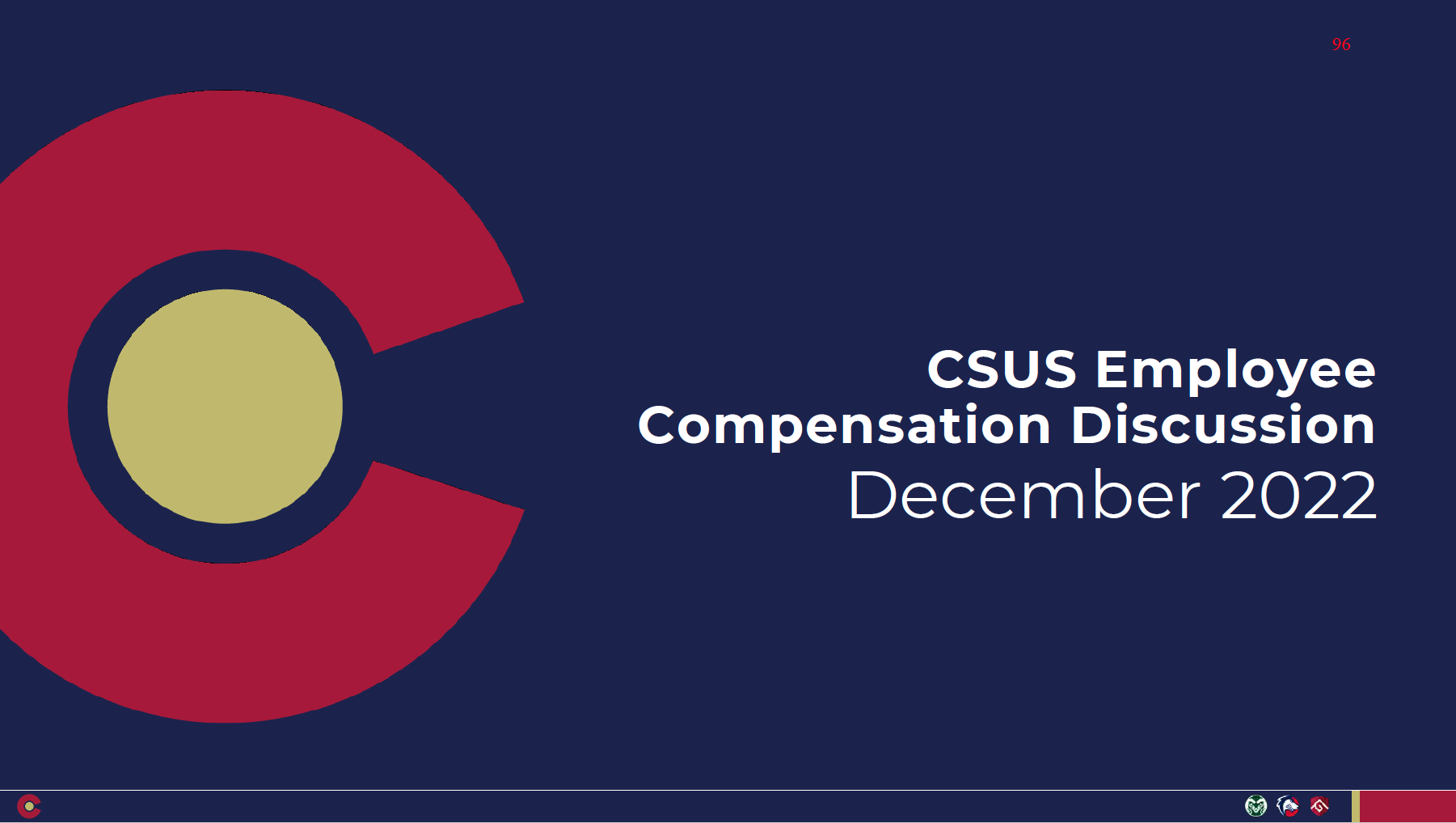
The Board of Governors of the CSU System heard a recurring theme at its Dec. 1-2 meetings in Denver: Boosting employee compensation is a top priority.
While earlier that week CSU officials had announced a phased plan to begin covering graduate assistants’ mandatory fees, the Dec. 1 meeting began with a public comment period in which two graduate students asked the board to do more, citing their low wages and significant workloads.
That afternoon, Henry Sobanet, chief financial officer for the CSU System, delivered a presentation on employee compensation, noting that factors such as inflation rates, local housing costs and job market forces have made it harder to recruit and retain faculty, staff and student employees. He also said that there is “compression” in certain areas, meaning that new employees are sometimes being paid more than longer tenured ones.
Possible raises of 3% to 5%
Sobanet added that, based on the current budget request for fiscal year 2023-24 and the student enrollment forecast, without higher tuition increases or internal reallocations, the CSU System may not be able to extend the same raise to all employee groups next year. State classified staff are currently expected to see a 5% raise next year based on collective bargaining between state officials and Colorado WINS (Workers for Innovative and New Solutions), which represents classified staff.
In meetings with Faculty Council, interim President Rick Miranda has been discussing four possible budget scenarios that provide employee salary increases of either 3% or 5%, coupled with either a 3% or 4% increase in resident undergraduate tuition, assuming that there is a 6.5% increase in state appropriations.
All raises and state appropriations will depend on the budget, or Long Bill, adopted by the governor and Legislature next spring.
At the board meeting, Sobanet noted that over the last five years, faculty and graduate assistant raises have totaled 13.1%, while classified staff have seen 12% in raises over that period. He also said expenses related to “fringe” benefits have increased substantially during that time due to higher pension and health care costs, which crowd out dollars that could have gone to salary increases. At the Fort Collins campus, fringe benefits account for about 28.6% of compensation for administrative professionals and 54% for classified staff.
Peer comparisons
According to Sobanet, in the most recent survey of CSU’s peer institutions, faculty salaries were 90.1% of the average, but total compensation, including benefits, was 94.1% of the peer average, meaning that CSU is more competitive in the area of benefits than it is in salary.
He also addressed the various revenue options available to increase employee compensation. Those include arguing for more state funding, considering higher tuition increases and reducing costs elsewhere. Alternatives that have been used in the past include non-base-building raises, budgeting for mid-year salary increases depending on enrollment levels and programs like “Commitment to Campus.”
Sobanet suggested identifying and prioritizing compensation increases for employee groups (including student employees) that have the largest gaps in relation to their average at peer institutions.
Short-term solutions include increasing employee understanding of the various factors at play, identifying savings from vacant positions to provide one-time awards to employees and enhancing relations with employee groups, including unions. In the medium to long term, Sobanet said, CSU can confirm that employee surveys accurately measure drivers of engagement, boost training for managers around improving engagement and evolving workplace expectations, explore “six sigma” or service line consolidations and, finally, consider program elimination to divert resources to compensation.
Board comments
Board member Betsy Markey agreed that it’s important for employees to understand the trade-offs involved in the compensation situation, and she said a top priority should be increasing compensation for non-tenure-track faculty.
Board member John Fischer asked if there had been enough creative thinking about identifying other avenues for generating revenue, and Chancellor Tony Frank said it is a topic that CSU officials intensively deliberate on every year, but there are few options.
“I don’t want to sound defeatist,” Frank said, “I just don’t want to raise false hopes that a pot of gold can be found.”
Miranda agreed, adding that CSU officials are constantly on the lookout for the “next big thing” that could generate additional revenue, citing the past examples of CSU Extended Campus and CSU Global.
Board of Governors Vice Chair Armando Valdez expressed appreciation for CSU’s employees.
“Our employees are the most valuable and critical resource we have,” he said. “To our employee groups, we love you, we appreciate you and we greatly value you.”